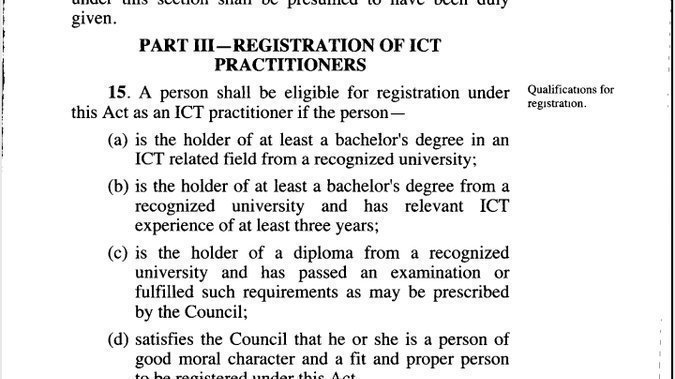Hi Millenial Readers,
I hope you are all doing fine and excited about the future. The August 2022 general election is here with us, and Kenyans have many expectations from the candidates they support. The food prices have been skyrocketing recently, and the cost of living has generally gone up. We all hope that the next government will improve things.
That aside, one of the most prominent issues that have been trending during the campaign is candidates being accused of using fake degree certificates to qualify for different elective seats. Under the Kenyan Election Act, candidates must fulfil the minimum education requirement for particular positions. Those vying for president, senator, and governor seats must provide proof of the degree qualifications from a recognized institution. Such requirements have forced some leaders to use unscrupulous means to attain fake papers; this is nothing new ahead of a Kenyan election.

However, this election period has been marred with numerous controversies involving some highly regarded politicians. We have witnessed many politicians who have allegedly provided certificates obtained from unverifiable institutions or through other dubious means. However, others have also argued that there are leaders who have been successful despite lacking these papers. Thus, it begs the question of whether academic credentials are necessary for individuals to represent citizens in different government positions. In my view, the degree requirement is superfluous because the level of education does not represent progress and the Independent Electoral and Boundaries Commission seems to lack effective procedures to confirm the credibility of these certificates. However, I worry more about the ethics and morals of our leaders.
First, I believe that the level of education is not a representation of progress. Many prominent leaders have successfully led their nations despite lacking a degree. For instance, Sir Winston Leonard Spencer-Churchill, better known as Winston Churchill, was born into the aristocratic Marlborough family. He had never attended college, yet that did not prevent him from becoming Prime Minister of the United Kingdom. He was also instrumental in bringing Britain back from the brink of defeat during WWII. Even successful business leaders such as Bill Gates established and ran empires that have dominated the technology world for years without a degree certificate.
Nevertheless, some leaders had degrees and failed in their positions. If education represented authentic leadership, the 12th Kenyan parliament (2017-2022), which included more than 130 Members of Parliament with master’s degrees and another 15 PhD holders, would be considered the best the country has ever witnessed. However, we can’t make such assertions because this parliament has been one of the most controversial passing bills, such as the ICT bill that President Uhuru Kenyatta rejected. Thus, we cannot ascertain that a degree accurately represents a leader’s ability.

Moreover, the Kenyan election commission also seems to lack the measures to confirm the integrity of the certificates provided to them. Recent scandals involving the current Candidate for the Nairobi Gubernatorial position, Honorable Johnson Sakaja, reveal major issues in confirming candidates’ degrees. Despite the Commission for University Education (CUE) revoking his degree certificate because Team University was not offering any course beyond its border when Sakaja received his degree, IEBC dismissed CUE, arguing that the commission’s Dispute Resolution Tribunal had already solved the matter. Thus, raising questions regarding the process used to verify academic credentials.
The relationship between education qualification and leadership quality is a major issue that Kenyans should debate as we head into the August election. However, in my view, we must first consider the morals and ethics of our leaders. Should we elect leaders willing to do anything to be on the ballot? Faking a degree is a criminal act that should be prosecuted, but making it a priority to vie for apposition is unnecessary. We also need to assess factors such as individual accomplishments of the development agendas and their track records over the years.

I’m not insinuating that education isn’t important. Indeed, education may bring knowledge, and we can all agree that knowledge is power, and it can assist our leaders in better comprehending many policy concerns such as international relations, gender issues, and financial matters. With this expertise, individuals can confidently contribute to various topics on the house floor and may have an easier time understanding parliament procedures. However, education should not be made an essential requirement to qualify for any position. What about those from underserved communities who do not have equitable access to education and learning opportunities?
Let’s think carefully about the matters and be more worried about the morality and integrity of those we elect to represent us in government. To the millennials and gen zs, remember to keep pieces of evidence proving that you graduated. You might actually need them one day.
These are just my personal views on the matter. Kindly comment below, and let us get this conversation going.
Until Next Time.
Fabian ✌✌✌

